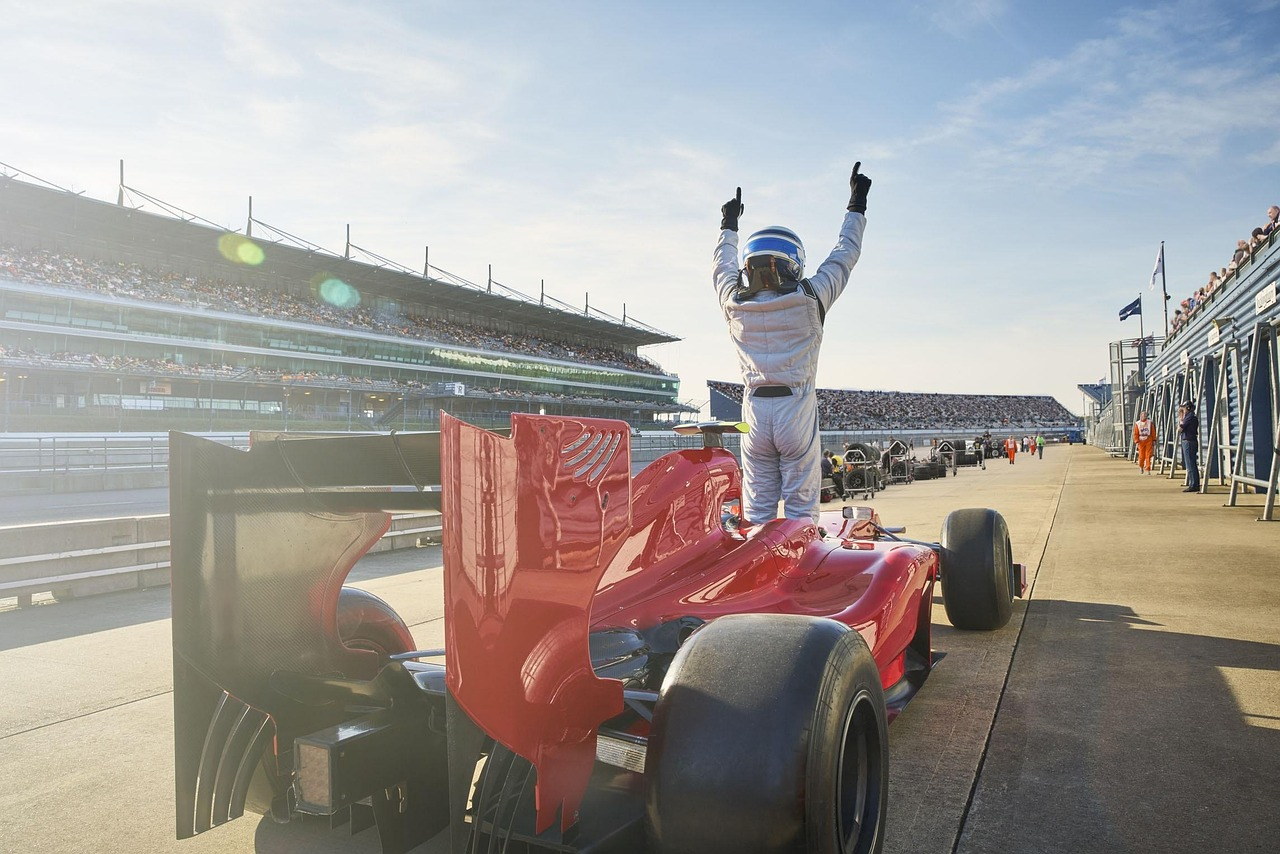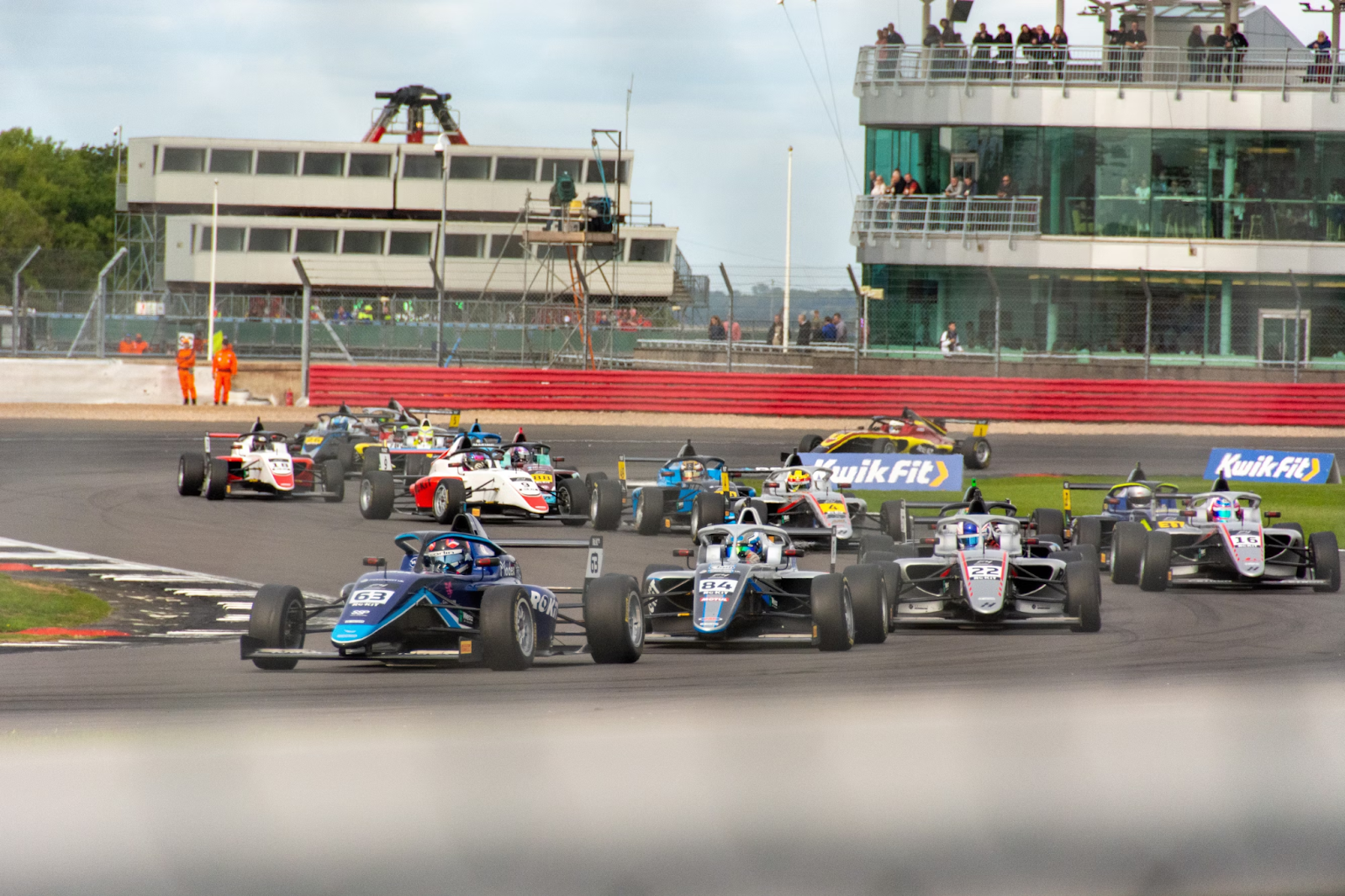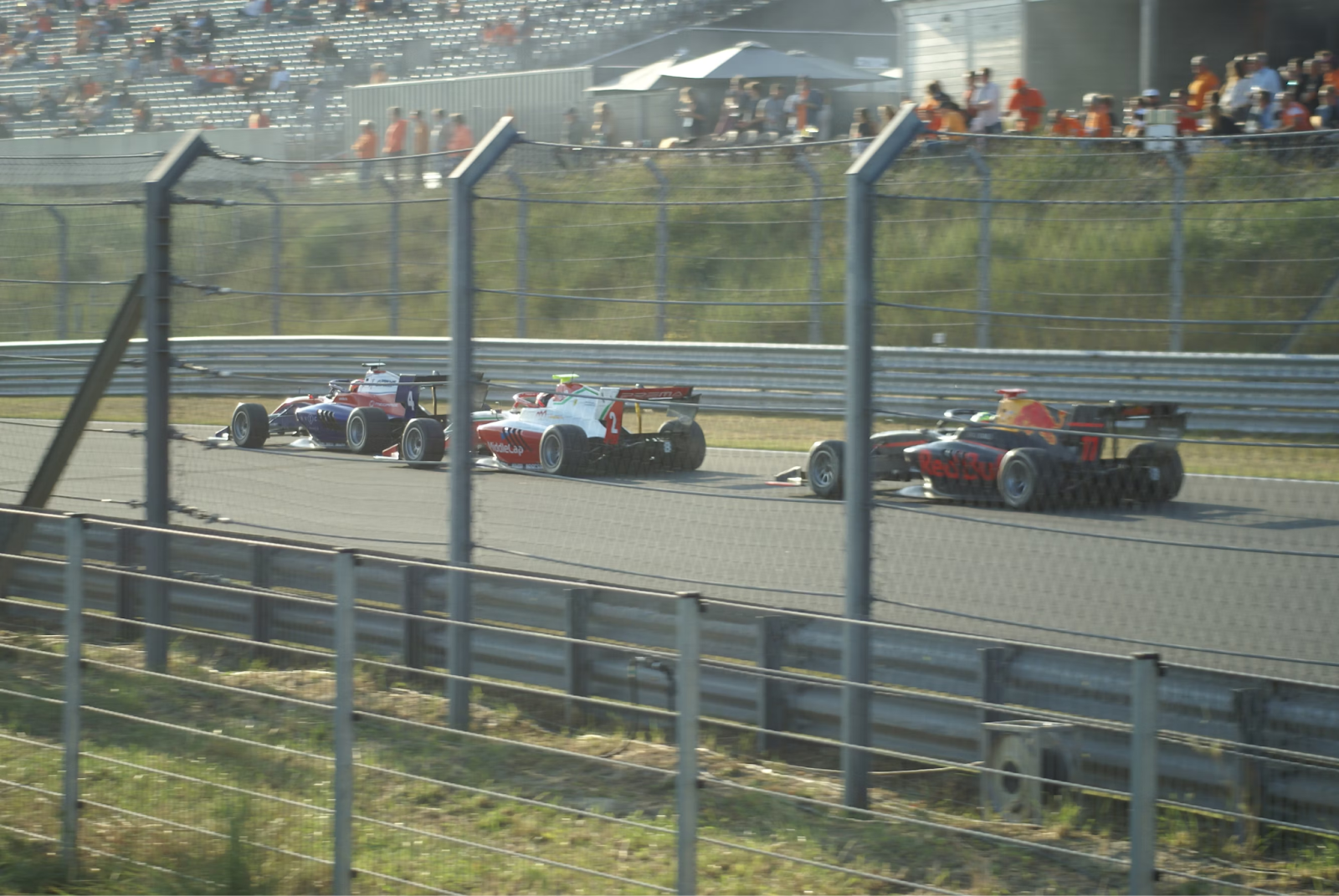Who Is the Best F1 Driver of All Time?

F1 has produced some of motorsport's most extraordinary talents. Determining the greatest driver in history sparks passionate debates among fans worldwide, each bringing their own criteria and beloved champions to the discussion.
What makes one F1 driver superior to another? Is it pure championship tallies, the ability to extract maximum performance from inferior machinery, or perhaps those magical moments when human skill transcends the limitations of technology?
The answer isn't straightforward, as Formula 1 has evolved dramatically across different eras, with varying levels of safety, technology, and competition.
Continue reading to explore the legendary drivers who have shaped F1 history. We'll examine their achievements, racing styles, and lasting impact on the sport that continues to captivate millions globally.
The Championship Giants: Seven-Time World Champions
Lewis Hamilton: The Modern Era's Dominant Force
Lewis Hamilton stands as one of the most successful drivers in F1 history, matching Michael Schumacher's record of seven world championships. His F1 career began with McLaren in 2007, where he immediately showcased his exceptional talent by finishing second in his debut season and claiming his first world championship the following year.
Hamilton's move to Mercedes in 2013 proved transformative for both the driver and the team. During Mercedes' dominant era from 2014-2020, he secured six additional world titles while establishing himself as the sport's most prolific race winner. His ability to perform under pressure, combined with exceptional wet-weather driving skills, has produced some of F1's most memorable moments.
Beyond statistics, Hamilton's influence extends far beyond the cockpit. His advocacy for diversity and social justice has sparked important conversations in Formula 1, while his interests in fashion and lifestyle have attracted new audiences to the sport. Racing now for Ferrari, his impact on F1's global appeal is undeniable.
Michael Schumacher: The Relentless Perfectionist
Michael Schumacher's name remains synonymous with F1 excellence even decades after his retirement. His five consecutive world championships with Ferrari from 2000-2004 represented one of the most dominant periods in Formula 1 history. Schumacher's approach to racing was methodical and intense, working closely with his teams to develop cars that perfectly suited his driving style.
What set Schumacher apart was his incredible work ethic and attention to detail. He would spend countless hours in simulators and studying telemetry data, pushing both himself and his teams to achieve perfection. His partnership with Ferrari created a winning culture that transformed the Italian team from an underachieving one into championship contenders.
The German driver's influence on modern F1 isn't defined by his championship tally alone. His professional approach to fitness, technical development, and race preparation became the template that today's drivers follow. Even current world champion Max Verstappen has cited Schumacher's dedication as inspiration for his own career approach.
Verstappen's father, Jos Verstappen, who was Schumacher's teammate at Benetton in 1994, has spoken about how Michael's work ethic and commitment influenced Max from a young age.
In an interview with F1 Insider, Jos Verstappen stated:
"Michael didn't differentiate between Max and Mick. If he had something to say, he told them both. It's quite possible that Max also benefited from these experiences. Max has a lot in common with Michael: uncompromising on the racetrack but kind, sensitive, and caring as a private person."
The Legendary Pioneers: Foundation of Greatness
Ayrton Senna: The Artist Behind the Wheel
Ayrton Senna's three world championships only tell part of his remarkable story. The Brazilian driver possessed an almost supernatural ability to find speed in challenging conditions, earning him the nickname "The Rain Master." His victory at the 1984 Monaco Grand Prix, where he started from 13th position in treacherous wet conditions, remains one of F1's greatest drives.
Senna's rivalry with Alain Prost defined Formula 1 in the late 1980s and early 1990s. Their battles on track were intense and sometimes controversial, but they pushed each other to extraordinary heights. Senna's pole position record stood for nearly 50 years, demonstrating his exceptional qualifying pace.
The tragic events at the 1994 San Marino Grand Prix ended Senna's F1 career prematurely, but his legacy continues to inspire drivers today. His commitment to safety improvements and his foundation's charitable work in Brazil ensure his influence extends far beyond his racing achievements.
Juan Manuel Fangio: The Original Master
Juan Manuel Fangio's five world championships across four different teams showcase adaptability that few drivers have matched.
Racing in Formula 1's early years required incredible bravery, as safety standards were virtually non-existent. Fangio's ability to win with Mercedes, Ferrari, Maserati, and Alfa Romeo demonstrates his remarkable skill in adapting to different machinery.
The Argentine driver's approach to racing was calculated and strategic. Unlike many of his contemporaries who drove flat-out throughout races, Fangio understood the importance of car preservation and tactical positioning. Such an approach allowed him to maintain his machinery while others retired, often securing victories through consistency rather than pure speed.
Fangio's influence on F1 strategy and racecraft laid the foundation for modern Formula 1. His understanding that races are won through intelligent driving rather than just raw speed became a principle that every successful F1 driver since has adopted.

The Modern Contenders: Today's Elite
Max Verstappen: The Next Generation Champion
Max Verstappen's emergence as a four-time world champion has added a new chapter to F1's ongoing greatness debate. His partnership with Red Bull Racing has produced some of the most dominant seasons in recent F1 history, including his record-breaking 2023 campaign, where he won 19 of 22 races.
Verstappen's driving style combines aggression with precision, allowing him to extract maximum performance from his Red Bull machinery. His ability to perform in pressure situations became evident during his thrilling 2021 championship battle with Hamilton, culminating in one of F1's most dramatic season finales.
What makes Verstappen particularly impressive is his consistency across different regulations and car characteristics. Whether fighting for victories or managing complex machinery, the Dutch driver has demonstrated remarkable adaptability, suggesting that his place among the greatest F1 drivers will only strengthen over time.
Fernando Alonso: The Master of Maximizing Performance
Fernando Alonso's two world championships with Renault represent just a fraction of his true ability. Throughout his F1 career, Alonso has consistently extracted maximum performance from machinery that often wasn't championship-worthy. His ability to fight for victories in inferior cars has earned him respect from competitors and fans alike.
Alonso's technical understanding and feedback to his engineering teams have been crucial throughout his career. His stints with McLaren and Ferrari showcased his ability to adapt to different team cultures and car philosophies while maintaining his exceptional performance level.
The Spanish driver's longevity in Formula 1 speaks to both his physical condition and mental approach to competition. Even in his 40s, Alonso continues to challenge drivers half his age, proving that experience and racecraft remain valuable assets in modern F1.
The Debate: Defining Greatness in Formula 1
Comparing drivers across different eras presents unique challenges. The early years of Formula 1 required extraordinary bravery, as drivers faced significant safety risks that modern competitors cannot imagine.
Drivers like Jim Clark, Jackie Stewart, and Stirling Moss competed when motorsport history was literally a matter of life and death, making their achievements even more remarkable.
Modern F1 drivers benefit from advanced safety systems, sophisticated data analysis, and professional support teams that earlier generations couldn't access. However, today's competition level is arguably higher, with 20 drivers representing the absolute elite of global motorsport talent.
Championships remain the most obvious measure of success, but they don't tell the complete story. Factors like teammate quality, car competitiveness, and reliability play crucial roles in determining championship outcomes. Some of F1's most talented drivers never won world titles due to circumstances beyond their control.

Statistical Analysis: Numbers Don't Lie
Race wins provide another perspective on driver greatness. Hamilton's 105 victories represent the current record, followed by Schumacher's 91 wins. However, win percentages often offer a better insight into a driver's performance relative to their era's competition level.
Pole positions demonstrate pure qualifying speed, with Hamilton holding the current record at 104. Senna's 65 pole positions in just 161 starts show a remarkable one-lap pace, while Schumacher's 68 poles across 308 starts demonstrate consistency over a longer period.
Podium finishes indicate overall competitiveness throughout careers. The most successful drivers typically exhibit high podium percentages, suggesting that they regularly fought for victories, regardless of their machinery's absolute performance level.
Conclusion
The question of F1's greatest driver will likely never reach a definitive answer, and perhaps that's exactly as it should be. Each era has produced extraordinary talents who maximized their opportunities while facing unique challenges and limitations.
Hamilton and Schumacher's seven championships place them in an exclusive club, but drivers like Senna, Fangio, and Alonso have demonstrated that greatness extends beyond championship tallies. The ongoing careers of Verstappen and other talented drivers ensure that this debate will continue to evolve.
What remains constant is Formula 1's ability to attract and develop exceptional racing talent. Whether measured by championships, race wins, or pure driving ability, the sport has consistently produced drivers who push the boundaries of what's possible behind the wheel.
In a sport built on passion and precision, perhaps the real answer lies not in statistics but in the emotional connection these legendary drivers create with fans worldwide.
















